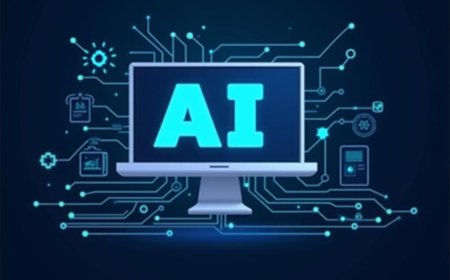What is EdTech and Why is Everyone Talking About It?
The term EdTech, short for Education Technology, has been gaining significant traction in recent years. It refers to the practice of using technology to improve and facilitate learning, making education more accessible, efficient, and effective. EdTech encompasses a wide range of tools, platforms, and services designed to enhance the educational experience for students, teachers, and institutions alike. From online learning platforms and educational software to digital resources and mobile applications, EdTech is revolutionizing the way we approach education.
One of the primary drivers behind the growing interest in EdTech is the need to address the challenges facing modern education. Traditional teaching methods are often criticized for being outdated, inflexible, and ineffective in preparing students for the demands of the 21st century. EdTech offers a solution to these problems by providing personalized learning experiences, increasing access to educational resources, and enabling more efficient assessment and feedback mechanisms. By leveraging technology, educators can create more engaging, interactive, and student-centered learning environments that cater to the diverse needs of their students.
Another factor contributing to the rise of EdTech is the rapid advancement of digital technologies. The proliferation of smartphones, tablets, and laptops has made it possible for people to access educational content anywhere, anytime. This has opened up new opportunities for online learning, allowing students to learn at their own pace and convenience. Moreover, the development of artificial intelligence, machine learning, and data analytics has enabled the creation of sophisticated EdTech tools that can analyze student performance, identify knowledge gaps, and provide targeted interventions.
The EdTech industry is also being driven by the growing demand for lifelong learning and professional development. As the job market continues to evolve, workers need to acquire new skills and knowledge to remain relevant. EdTech platforms and courses are providing individuals with the opportunity to upskill and reskill, enabling them to stay competitive in the job market. Furthermore, EdTech is facilitating the development of new educational business models, such as online degree programs and micro-credentialing, which are changing the way we think about education and certification.
Despite the many benefits of EdTech, there are also challenges and concerns that need to be addressed. One of the primary concerns is the issue of equity and access. Not all students have equal access to technology, and this can exacerbate existing inequalities in education. Moreover, there are concerns about the quality and effectiveness of EdTech tools, as well as the potential for job displacement and the need for educators to develop new skills. To overcome these challenges, it is essential to ensure that EdTech is developed and implemented in a way that is inclusive, equitable, and effective.
In conclusion, EdTech is transforming the education sector in profound ways. By harnessing the power of technology, educators can create more effective, efficient, and engaging learning environments that cater to the diverse needs of their students. As the EdTech industry continues to evolve, it is likely to have a lasting impact on the way we approach education, making it more accessible, affordable, and effective for all. Whether you are an educator, a student, or simply someone interested in the future of education, it is clear that EdTech is an area worth exploring and understanding.
As we look to the future, it is clear that EdTech will continue to play a critical role in shaping the education sector. With the ongoing development of new technologies and innovations, we can expect to see even more sophisticated EdTech tools and platforms emerge. These will likely include advancements in areas such as virtual and augmented reality, blockchain, and the Internet of Things (IoT), which will further enhance the learning experience and provide new opportunities for educational innovation.
Ultimately, the success of EdTech will depend on our ability to harness its potential in a way that is equitable, effective, and sustainable. This will require collaboration and coordination among educators, policymakers, and industry leaders, as well as a commitment to ongoing evaluation and improvement. By working together, we can ensure that EdTech is used to its full potential, transforming the education sector and improving outcomes for students around the world.
To achieve this, it is essential to prioritize the development of EdTech that is guided by pedagogical principles and evidence-based practice. This means ensuring that EdTech tools and platforms are designed with the needs of learners and educators at their core, rather than simply being driven by technological innovation. By taking a learner-centered approach to EdTech development, we can create solutions that are more effective, more engaging, and more sustainable in the long term.
Furthermore, it is crucial to address the digital divide and ensure that all students have access to the technology and digital literacy skills they need to succeed in an increasingly digital world. This will require investment in infrastructure, teacher training, and digital literacy programs, as well as efforts to promote equity and inclusion in EdTech development and implementation.
By addressing these challenges and prioritizing the needs of learners and educators, we can unlock the full potential of EdTech and create a more equitable, effective, and sustainable education system for all. As we move forward, it is clear that EdTech will continue to play a critical role in shaping the future of education, and it is up to us to ensure that it is used in a way that benefits everyone.





















